These are the glyphs in line Kb3:
 |
 |
 |
 |
 |
 |
| Kb3-1 (130) |
Kb3-2 |
Kb3-3 |
Kb3-4 |
Kb3-5 (*200) |
Kb3-6 |
| |
δ Muscae (196.5), Vindemiatrix (196.8), ξ¹ Centauri (197.1) |
ξ² Centauri (197.9) |
Apami-Atsa (198.5), Diadem (198.9), Al Dafīrah (199.4) |
σ Virginis (200.4) |
ι Centauri (201.4) |
| 'October 3 |
'4 (277) |
'13h (197.8) |
'6 |
'7 (280) |
'8 |
| Azzubra 9 |
10 |
11 |
12 |
13 |
Assarfa 1 (145) |
Vindemiatrix, the Grape Gatherer, will remind us of the Mayan raincloud signs, characterizing (cfr at Vero) the 2nd half of summer. They look like grapes (black, green, white, respectively red):
| summer |
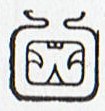 |
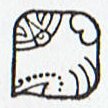 |
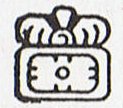 |
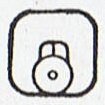 |
| 5 Tzek |
6 Xul |
7 Yaxkin |
8 Mol |
| 100 |
120 |
140 |
160 |
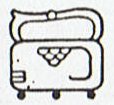 |
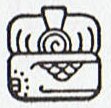 |
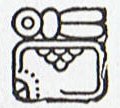 |
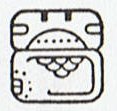 |
| 9 Ch'en |
10 Yax |
11 Sac |
12 Ceh |
| 180 |
200 |
220 |
240 |
Heze is ζ at the lap of Virgo and the next star in the constellation (τ) will not arrive until in line Kb4:
 |
 |
 |
 |
| Kb3-7 (136) |
Kb3-8 |
Kb3-9 |
Kb3-10 (*205) |
| Mizar (202.4) |
Spica, Alcor (202.7) |
|
Heze (205.0) |
| 'October 9 (282) |
'10 |
'11 |
'12 (285) |
| Assarfa 2 (146) |
3 |
4 (148) |
5 |
The epsilon (ε) sign (like a little viri) at Kb3-11 ought to induce us to perceive a beginning and maybe the long Centaurus constellation should be regarded as having its 'nose' at the curved hau tea rather than at π Centauri:
 |
 |
 |
| Kb3-11 (140) |
Kb3-12 |
Kb3-13 (*208) |
| ε Centauri (206.3) |
|
τ Bootis (208.2) |
| 'October 13 |
'14 |
'15 |
| Assarfa 6 (150) |
7 |
8 |
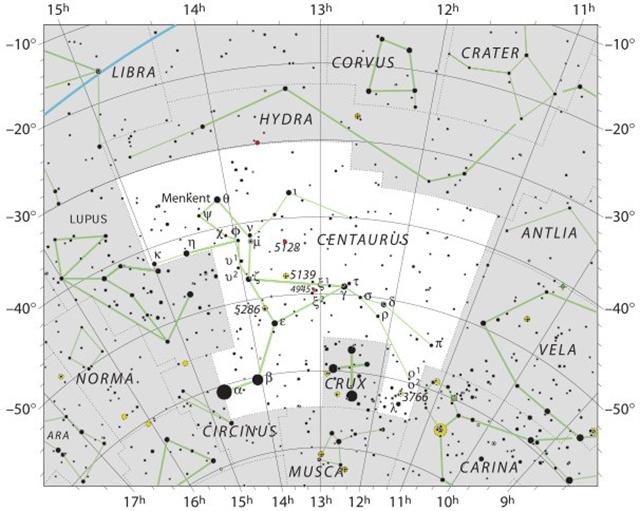
However, Rogo in the following π (3-14) glyph evidently serves as a sign for us to go back in order to in some way connect the front of the Centaurus constellation with its back:
 |
 |
 |
 |
| Kb1-7 |
Kb1-8 (100) |
Kb1-9 |
Kb1-10 (*168) |
| |
Alkes (165.6), Merak (166.2) |
Dubhe (166.7) |
|
| 'September 2 |
'3 (246) |
'11h (167.4) |
'5 |
| Alterf 4 |
5 (110) |
6 |
7 |
 |
 |
 |
 |
| Kb1-11 |
Kb1-12 (104) |
Kb1-13 |
Kb1-14 |
| Al Sharas (168.6), Zosma (169.2), Coxa (169.4) |
|
Alula (170.5), Labrum (170.6) |
λ Crateris (171.6), ε Crateris (171.9), γ Crateris, π Centauri (172.0) |
| 'September 6 |
'7 (250) |
'8 |
'9 |
| Alterf 8 |
9 (114) |
10 |
11 |
| 36 |
 |
 |
 |
| Kb3-14 (143) |
Kb3-15 |
Kb3-16 |
| |
Benetnash (208.5), ν Centauri (208.7), μ Centauri, υ Bootis (208.8) |
Muphrid (210.1), ζ Centauri (210.3) |
φ Centauri (211.0), υ¹ Centauri (211.1) |
| 36 |
'October 16 |
'17 (290) |
'18 |
| Assarfa 9 |
10 |
11 (155) |
In the picture of Hevelius we can see π and ε are at the same level, marking the back respectively the front legs. In between is the belly of the horse:
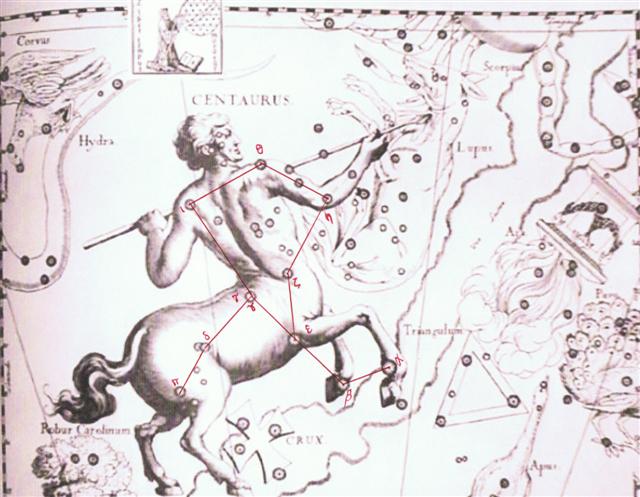
The central point on the horse's belly should be halfway from π to ε, i.e. at mago in glyph 123:
 |
 |
 |
 |
13 |
| Kb1-11 |
Kb1-12 |
Kb1-13 |
Kb1-14 (106) |
| Al Sharas (168.6), Zosma (169.2), Coxa (169.4) |
|
Alula (170.5), Labrum (170.6) |
λ Crateris (171.6), ε Crateris (171.9), γ Crateris, π Centauri (172.0) |
|
| 'September 6 |
'7 (250) |
'8 |
'9 |
13 |
| Alterf 8 |
9 |
10 |
11 |
 |
 |
 |
 |
 |
 |
 |
| *Kb2-9 |
*Kb2-10 |
*Kb2-11 |
*Kb2-12 |
*Kb2-13 |
*Kb2-14 |
*Kb2-15 |
| Zaniah (185.9), Chang Sha (186.3) |
Intrometida (187.4) |
Acrux (187.5), γ Com. Berenicis (188.0), σ Centauri (188.1) |
Algorab (188.5), Gacrux (188.7), γ Muscae (189.0), Avis Satyra (189.3) |
Asterion (189.5), Kraz (189.7), α Muscae (190.2) |
τ Centauri (190.5), χ Virginis (190.7), ρ Virginis (191.4) |
Porrima, γ Centauri (191.5) |
| ' 23 |
'24 |
'25 |
' 26 |
'27 |
'28 |
'29 (272) |
| 12 |
Dschuba 13 |
Azzubra 1 |
2 |
3 |
4 |
5 (136) |
| 13 |
 |
 |
 |
| Kb3-11 (140) |
Kb3-12 |
Kb3-13 (*208) |
| |
ε Centauri (206.3) |
|
τ Bootis (208.2) |
| 13 |
'October 13 |
'14 |
'15 |
| Assarfa 6 (150) |
7 |
8 |
This is the 3rd and last mago in the text and the pattern seems to point at the 'nose of the Lion' or at Alphard:
 |
32 |
 |
46 |
 |
58 |
42 |
| Ka3-2 (43) |
Ka4-14 (76) |
*Kb2-12 (123) |
| |
|
Al Minhar al Asad (141.6), Alphard (142.3) |
|
Algorab (188.5), Gacrux (188.7), γ Muscae (189.0), Avis Satyra (189.3) |
100 |
| 'July 8 (189) |
32 |
'August 10 (222) |
46 |
'September 26 (269) |
|
| Al Tuwaibe' 13 (53) |
Murzim 7 (86) |
Azzubra 2 (133) |
| 80 |
101 |
September 26 can be written 9-26 and then the numbers reshuffled into 269.
|
























